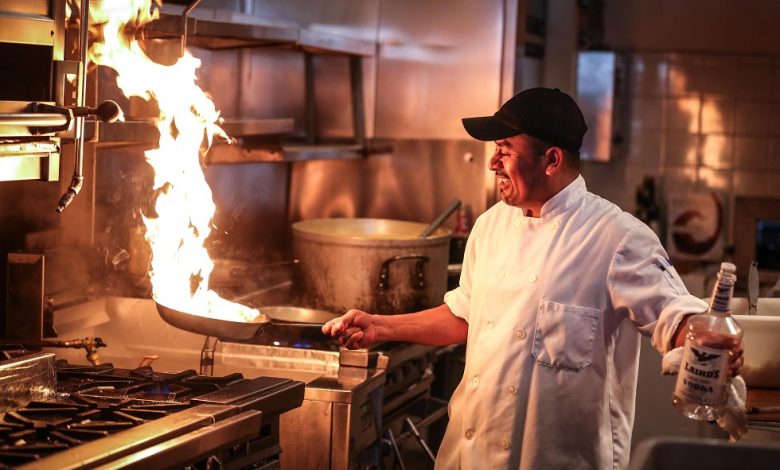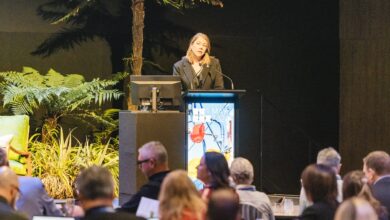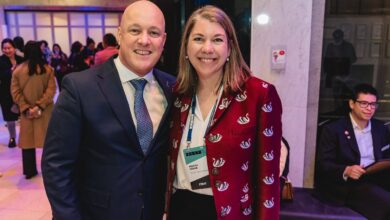
Move to allow skilled chefs into NZ a lifesaver
But concerns raised with imminent AEWV wage increase
Further to AccomNews’ coverage on October 8 (Chef-starved NZ optimistic for skilled migrant update),Hospitality New Zealand (HNZ) and Hotel Council Aotearoa (HCA) have welcomed the Government’s move to relax immigration settings to allow skilled chefs into New Zealand.
Our latest AccomNews print issue is available now! Read it HERE.
HNZ Chief Executive, Julie White said removing the qualification requirement for chefs under the Accredited Employer Work Visa (AEWV) is an excellent move.

“This will allow hospitality businesses to bring in chefs who have trained in some of the best kitchens across the world,” she said, adding this was seen as a significant move for the industry which has been starved of the highest-quality chefs.
“’Till now only chefs with the equivalent of New Zealand’s level 4 cookery qualifications have been allowed in, but very few were applying because that qualification is not relevant for overseas skilled chefs.
“Under the existing system, someone like Jamie Oliver, who has a qualification in home economics, would not have met the criteria to enter New Zealand to work as a chef, but now he could – as could others who have worked under Michelin Star chefs.
“This will hopefully save businesses that might otherwise have been forced to shut.
“Hospitality New Zealand has been talking to the Minister and officials for months about including relevant industry experience in the migrant chef criteria settings, and it’s great they have heard us.
“But we still have a shortage of skills and we are still competing with overseas markets for them
“The extension of the transition towards the full median wage for hospitality and tourism businesses will also help them further manage their way out of the damaging effects of COVID and the border closures.
However, Ms White questioned the Government’s announcement to increase the temporary threshold for tourism and hospitality businesses from next year, despite calls for the current threshold to be extended until April 2024.
“Is this was really the right time to be doing that,” she said.
“By increasing the median wage into the immigration system, the move will feed inflation and put further costs on businesses’ food, wages and rent.
The increase will see a rise to 95 per cent of median wage, or $28.18 (based on the new median wage of $29.66 per hour).

Ms White’s comments have been echoed HCAs Strategic Director, James Doolan, who said his organisation was grateful the Minister had acted on repeated submissions from tourism and hospitality industry groups.
“Removing this hurdle of qualifications checking is a common-sense outcome when New Zealand’s hotels and motels are desperate to rebuild their workforces after COVID,” Mr Doolan said.
But Mr Doolan also expressed concern with the impact the Government’s announcement to increase the temporary threshold.
Mr Doolan said HCA, and other tourism industry groups, had sought an extension of the $25.00 temporary AEWV threshold until April 2024, or when international tourist arrivals returned to pre-COVID levels.
“The new temporary AEWV threshold is still an increase of 12.7 per cent above the existing $25.00 per hour threshold for tourism and hospitality, and 32.9 per cent higher than today’s minimum wage,” he said.
“Those are large increases for a sector that’s already struggling to deal with cost increases across almost all parts of the business,” he said.
HNZ, HCA and other tourism industry groups had sought an extension of the $25.00 temporary AEWV threshold until April 2024, or when international tourist arrivals return to pre-COVID levels.
“Tourism often happens in isolated locations that have insufficient permanent residents to fill all entry-level roles,” said Doolan.
“If New Zealand wants to attract international tourists to destinations such as Queenstown, the West Coast, Rotorua or the Bay of Islands, then we need imported labour to those destinations because demand is highly seasonal.
“We hope this decision on chef qualifications signals a willingness from Government to work with the Tourism industry on systemic regional and seasonal workforce shortages, while still supporting the best possible recovery after COVID lockdowns and border closures.”
Mike Parker-Brown is a UK-trained and qualified journalist and an award-winning travel communicator with more than 30 years experience.
Since 2002, Mike has worked as a freelance writer and PR consultant providing his services to major organisations in Australia and internationally in the tourism, aviation, hospitality, recruitment and export marketing sectors.







